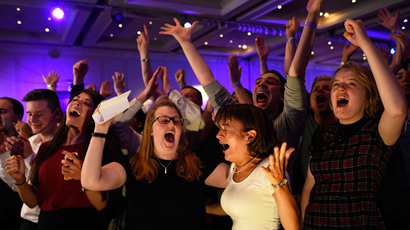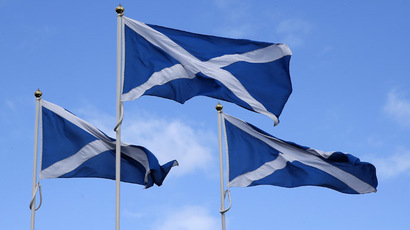Scotland votes 'No' to split from UK in independence referendum
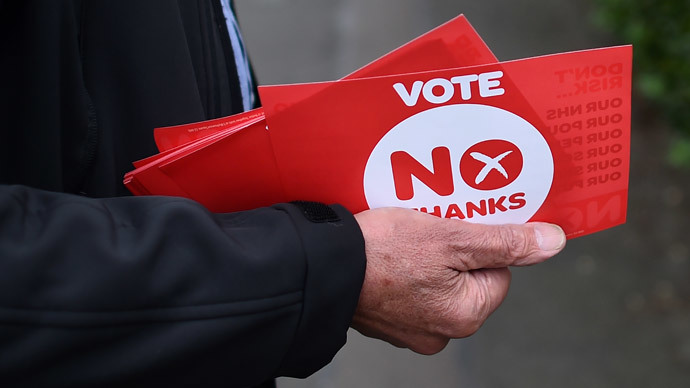
Scots have voted to stay in the UK, following an intense campaign which saw both pro-independence and pro-union campaign groups scraping for last-minute support. The ‘No’ campaign rallied 55 percent of votes against 45 percent ‘Yes’ votes.
READ: Scottish independence referendum LIVE UPDATES
One of the leaders of Scotland's independence campaign effectively conceded defeat early on Friday morning as the counting was continuing.
"Like thousands of others across the country, I've put my heart and soul into this campaign and there is a real sense of disappointment that we've fallen narrowly short of securing a ‘yes’ vote," Nicola Sturgeon, deputy leader of the Scottish National Party, told BBC Television.
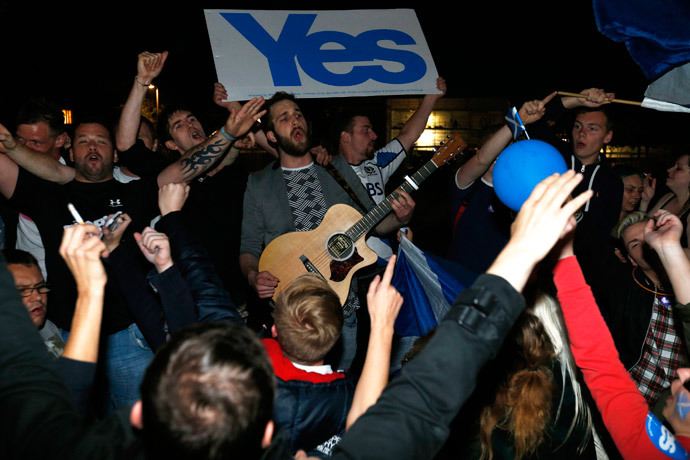
Accepting defeat, Scotland’s First Minister Alex Salmond delivered his concession speech to his supporters and Scottish National Party activists, whose victory in least years’ elections was built on the promise of an independence vote.
"Scotland has, by majority, decided at this stage not to be an independent nation. I accept that decision and call on all people in Scotland to do so,” he said.
He added that the even a failure in referendum is important, because the level of support for a Scottish independence was massive enough to ensure that there would be no “business as usual” in the UK.
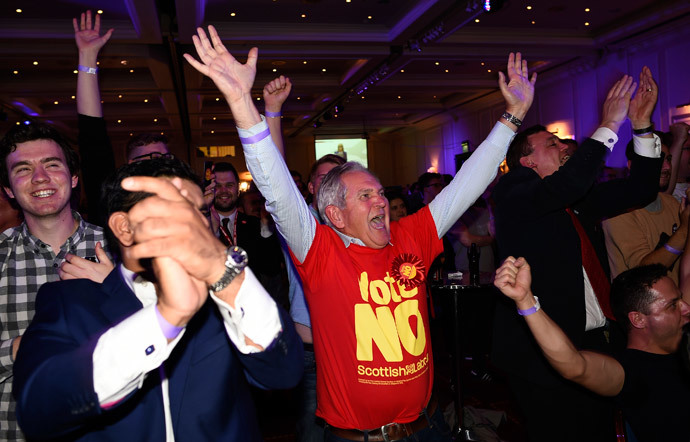
Representatives from the 'Better Together' group thanked Scottish voters, and hoped that the referendum’s end would result in a stronger union in the future.
British Prime Minister David Cameron stressed that the direct ‘yes’ or ‘no’ vote made the centuries-old debate over a Scottish referendum settled for this generation, or probably for a lifetime.
“It’s time for our United Kingdom to come together and move forwards,” Cameron said. “I am a passionate believer in our United Kingdom.”
He also pledged to deliver on the unionists’ promises made in campaign, changing things to the better for people not only in Scotland, but also in England, Wales and Northern Ireland.
Nick Clegg, deputy prime minister of the United Kingdom, said that he is “absolutely delighted” that the people of Scotland have voted ‘No’ in the referendum.
The people of Scotland have reaffirmed the bonds that bind them to the United Kingdom, said Alistair Darling, the leader of the Better Together group that campaigned for Scotland to remain part of the UK. He added that the majority of Scottish voters have chosen unity instead of division.
"We've taken on the argument and we've won. The silent have spoken," he added. "We must now deliver on time and in full the radical package of newly devolved powers to Scotland. This referendum marks not only a new chapter for Scotland within the UK but also wider constitutional reform across the Union."
While the ‘No’ campaign had been consistently leading in the polls since last year, their lead narrowed in the final months of the campaign, as the ‘Yes’ side built up a stronger presence at a local level and on social media.
Toward the end of the campaign, some polls suggested that the ‘Yes’ vote had a slight lead, although the majority of polls conducted in the UK and internationally concluded that the outcome would be too close to call.

While Scotland remains part of the union, the country’s relationship with the rest of the United Kingdom is expected to change considerably.
All three major parties have agreed to grant Scotland more authority over issues including welfare spending and setting its out levels of tax-decisions currently in the hands of the politicians in Westminster.
"I can say that I will personally seek to lead a debate on the floor of the House of Commons in the first week that Westminster returns after the referendum, with the specific aim of confirming the public and well-understood agreement on the process and timetable for further devolution" said former Prime Minister Gordon Brown.
"There can be no doubt of the strength of the UK parliament's commitment to change and no going back on the promise of further legislation," he added.
Brown had also warned that if Scotland decided to keep the pound as its currency, it would be in a ‘colonial relationship’ with the rest of the UK.
However, there is currently no set date in which new devolutionary measures are to be debated in Parliament.













